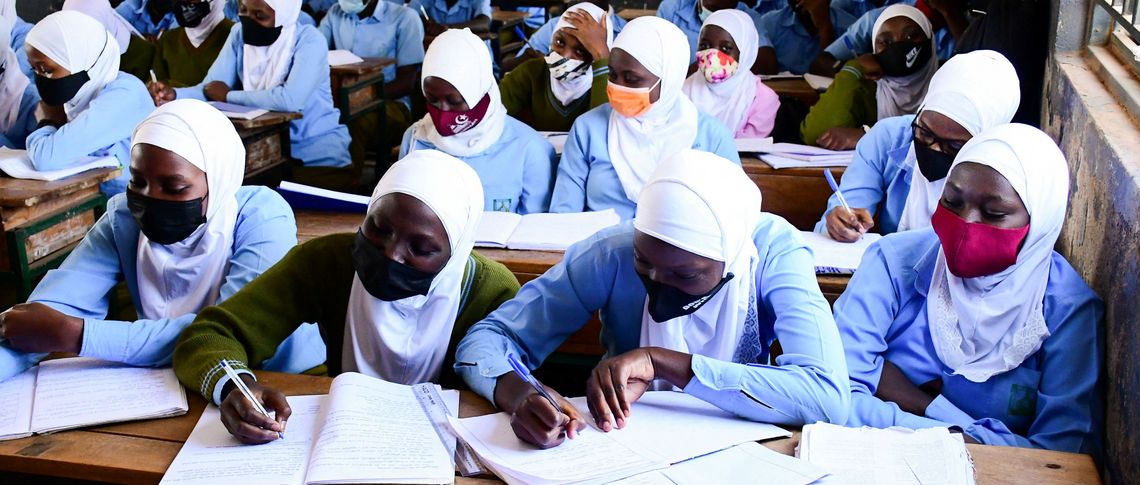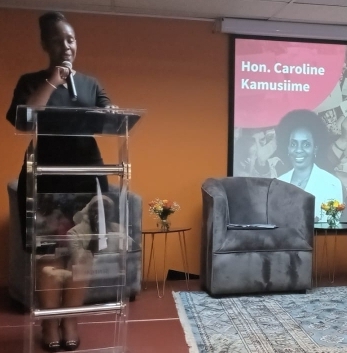There is fear and anxiety as some of the education institutions across the country propose early closure of this term over rising food prices.
We’ve found out that many schools; both private and government-aided, are facing food shortages.
The cost of food items such as maize flour, soap, matooke, Irish potatoes, cooking oil, sugar, beans, salt and bread, among others, have been on the rise since the start of the year.
For instance, a kilogramme of maize flour has spiked from Shs2,000 to Shs4,000, a bunch of matooke from Shs10,000 to Shs20,000 and a kilogramme of beans from Shs3,000 to Shs4,000.
During an address last week, President Museveni said government interventions of cutting taxes or subsidies would mislead the people on the state of the economy.
“Me as a rebel, when I see this situation and I say, we must migrate to something else, not subside…Because when we subside, people will continue buying more and more. You will create an artificial comfort to the people for them to think things are normal when they aren’t normal and you do that by bleeding yourself,” President Museveni said.
The school administrators interviewed said although the official day for closure is August 12, they are contemplating closing early because the cost of feeding learners has doubled.
Mr Aloysius Katureebe, a teacher at Crown High school, a private school in Kamwenge District, says they are planning to close on July 27.
“We have enrollment of 203 students but we are finding a big challenge of maintaining the learners at school. Currently, the food is over,” he says.
Mr Katureebe says the school spends Shs150,000 on a single meal unlike in the past where they were spending Shs70,000.
“We buy 25 kilogrammes of posho at Shs85,000 and yet previously we used to buy the same kilogrammes at Shs35,000,” he said.
Daily Monitor learnt that school arrangement is also proposing that each student brings 50kgs of maize and 16kgs of beans .
Mr Godfrey Tumwijukye, the deputy head teacher of St Michael Kahunge in Kamwenge, said the situation is getting worse. “Our plan is to close the term between 5th and 6th next month because the cost of feeding learners is too high,” he said.
Mr Tumwijukye says the remaining food is not enough to sustain learners up to the end.
The head teacher of Trinity High School, Kamwenge, Mr Alex Arinaitwe, says the posho and beans which students brought at the beginning of the term was consumed in the first two weeks.
Mr Arinaitwe says the school director bought more three tonnes of posho and 300kgs of beans at Shs9 million but unfortunately by Saturday, last week, only three bags of posho had remained.
“…but we still have about three weeks ahead to complete the term,” he says.
Mr Arinaitwe says the school has over 300 students and at lunch time, they consume about 40kgs of posho for supper, 32kgs for lunch and 12kgs for breakfast.
At Bishop Balya Girls, Kamwenge, the school plans to send students from Senior One to Senior Three at home next week.
The school deputy administrator, Ms Shamim Tumutegerize, said the school has an enrollment of 186 students and they consume 68kgs of maize flour on a daily basis.
“We are using the money which we are supposed to pay teachers and instead use it to buy food for students,” he said.
Mr Deogratius Sekyole, the education officer of Mpigi District, confirmed that some schools with nursery sections have already sent the pupils for holiday.
He says: “We are going to write to all schools reminding them about the official closure of the term which is August 12, and any school that closes before the due date must have written to my office informing me about their early closure and stating the reasons.”
In Kalangala, Mr Ronald Mutebi, the inspector of schools, says his team would conduct on spot inspection to ensure that the schools follow the Ministry of Education calendar.
“We hear rumours that some schools are planning to close before the term ends due to high prices of food items, that’s why we are doing spot check to make such schools abide by the Ministry calendar,” Mr Mutebi told Daily Monitor.
At privately owned schools like Lake Victoria and Bridge of Hope Primary School in Kalangala Town Council and Mugoye Sub-county, the administrators have no plans to end the term soon, but they expressed concern over the high food prices .
In Moyo District, two weeks ago, casual labourers at Moyo Secondary School, threatened to lay down their tools after the school failed to pay them for three months.
The school administrators say they spend a lot of money buying foodstuffs and as a result fail to pay salaries.
Mr Micheal Mali, the District Education Officer, told Daily Monitor on Monday that the school has been advised to prepare for early closure of the school.
“It will be worse when the school runs out of food to feed the students. This might result in a strike which we don’t want to occur right now,” he said.
Mr Fredrick Wana, the head teacher Moyo Secondary School, says the economy is hitting them harder.
“We are pushing and I cannot promise you that we will close the school before the official date as of now,” he says.
In Yumbe District, Mr Muzamil Munduga, the headteacher of Kuru Secondary School, says they have no plan to close the school despite the current situation.
In Soroti, Mr Richard Omusei, the director of Halcyon High School, says they have decided to borrow money from banks to sustain the school.
“The most pressing issue at hand is buying posho rather than beans,” he says, adding that they will close on August 9.
Mr Vincent Obuku, one of the directors for Jerressar High School, says parents also have no money to clear fees.
“Currently, the problem is that parents also cannot afford to clear school fees and some have enrolled their children to seed schools,” he says.
In Rukiga District, the head teacher for Kihanga Senior Secondary School, Mr Onesmus Rukundom, says they plan to end the term before August 6.
“We cannot go beyond August 6 because the economic crisis has hit us so hard. We did not increase school fees like other schools did,” Mr Rukundo says.
The head teacher of Bubare Senior Secondary School in Rubanda District, Mr Amos Ahimbisibwe, maintains that they will close on the official day despite the high prices of commodities.
The head teacher of Manjasi High School, Mr David Wanda Sidialo, says the school is operating under pressure.
“We are only lucky that our service providers have understood our situation,” he says.
Ms Beatrice Akware, the head teacher of Tororo Girls School, says the school is financially crippled.
She says they have asked service providers to be patient up to next term when the school will clear their arrears.
“We cannot blame the service providers for the increase of prices because flour that we have been buying at Shs2,000 is now at Shs3,800,” she says.
The municipal council inspector of schools, Mr Richard Odoi, says a number of schools have written to his office requesting to be allowed to close early.
“…but we have rejected and asked them to follow the academic calendar,” he says.
In Mbale, Mr Sam Mabongo, the headteacher of Bugisu High School, says most of the schools’ expenditure is on consumption. “We are trying to catch up with the economy but it’s becoming so hard to provide and feed students as before,” he says.
In Mbarara, the Western Region Chairperson for Federation of Non-state education Institutions in Uganda, Mr Laban Tanya, says most schools will close before August 12.
“We do not have food items such as posho, beans and many others. In addition, most schools are operating on credit which will lead to hiking of school fees in the coming term,” he says.
In Jinja, the director of Jinja Comprehensive Secondary School, Mr Nelson Balabyeki, says they decided to release the students one week earlier.
He says: ‘‘You cannot tell the parents to pay more fees when the term is ending and neither can you keep their children at school when you don’t want to feed them.’’
At Anyomolyec Primary School in Otwal Sub-county in Oyam District, some pupils have dropped out of school.
The school head teacher, Mr Patrick Oyuru, says the government should intervene in the spiked food prices.
Credit: Daily Monitor
![]()




























